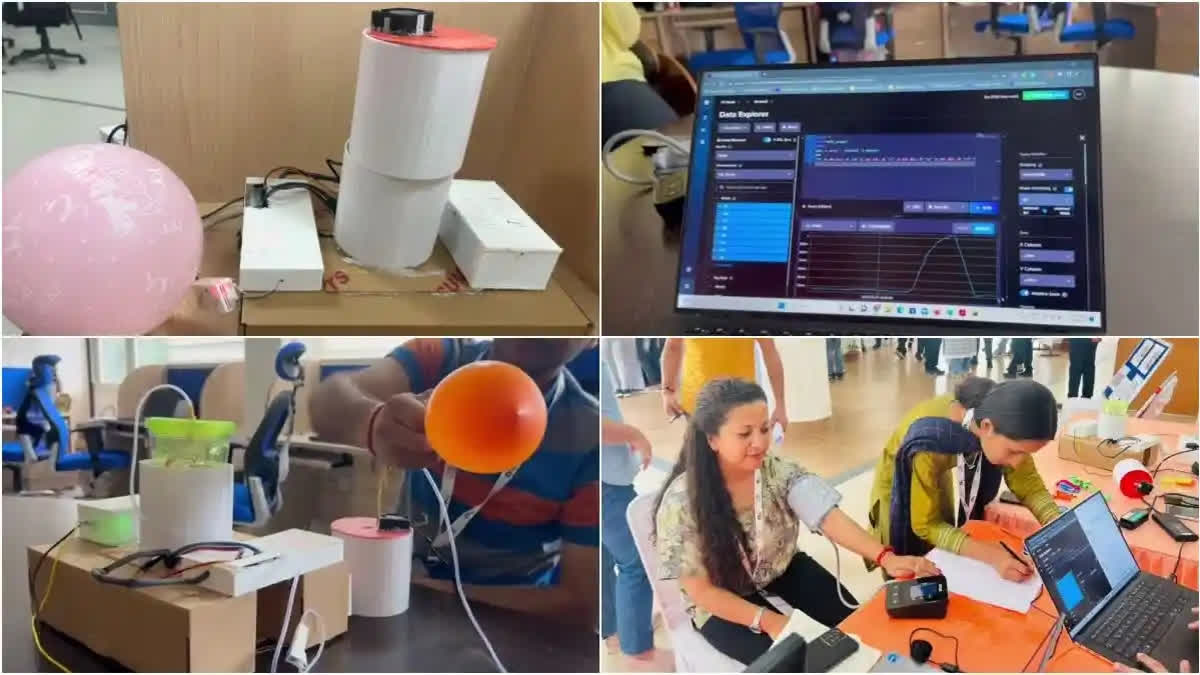Mandi(Himachal Pradesh):
The prevalence of diabetes in India is on a relentless rise. Traditionally, diabetes testing devices like glucometers were seen as the best way to test for diabetes. They provided quick results with just a blood sample. But a new development is on the horizon where blood samples may no longer be necessary. IIT Mandi researchers have introduced a revolutionary device that can detect diabetes by inhaling air into a balloon. This is the beginning of a new age of non-invasive diagnostics.
This device, aptly named the non-invasive glucometer, has shown promising results in initial trials conducted by the dedicated team at IIT Mandi. Spearheaded by Dr. Ritu Khosla, the Senior Project Scientist, alongside research head Dr. Varun and a team of diligent students, including Hrithik Sharma, Yashwant Rana, Swati Sharma, Vedant Rastogi, and Shivani Sharma, this innovation represents a significant leap forward in diabetes detection technology.
Senior Project Scientist Dr. Ritu Khosla emphasised the transformative potential of this device, highlighting its ability to detect diabetes without the need for invasive blood sampling. By simply inhaling air into the device, individuals can glean insights into their diabetic status swiftly and non-invasively.
The device boasts multiple sensors meticulously calibrated to gauge blood sugar levels, along with parameters such as blood pressure, blood oxygen levels, gender, and user identification details. This data is seamlessly integrated with a mobile app, facilitating real-time monitoring and analysis.
One of the most impressive features of the device is its ability to work in remote or under-served areas where access to conventional medical care may be restricted. Dr Khosla highlights the potential impact of the device in remote and under-served areas, such as in the sparsely populated areas of Hapur and Chandigarh in the state of Haryana.
Although the device has not been developed under the supervision of specialist physicians, it has shown promising results, especially in pre-clinical studies conducted in partnership with the AIIMS, Bilaspur.
Crucially, the non-invasive glucometer boasts an impressively low margin of error, with Dr. Khosla asserting a mere one percent likelihood of inaccuracies in results—a stark contrast to the five percent margin of error associated with conventional glucometers. Over 560 individuals have undergone testing with the device thus far, reaffirming its reliability and accuracy.
Looking ahead, the research team remains steadfast in their commitment to enhancing the device's capabilities. The incorporation of eight to ten sensors, coupled with ongoing data collection efforts, aims to refine and optimise its performance further. Dr. Khosla revealed plans to expand the device's diagnostic repertoire, with aspirations to predict and detect other life-threatening conditions such as heart attacks.
Read More



